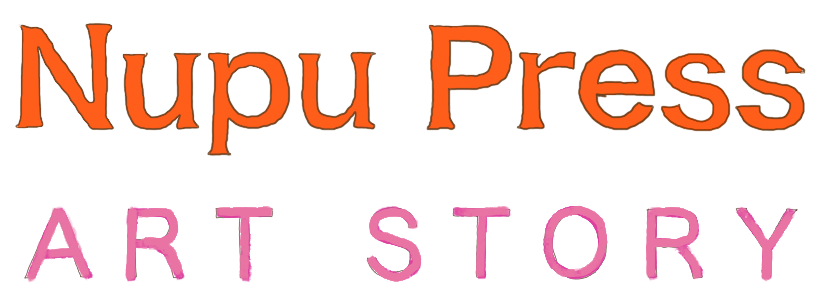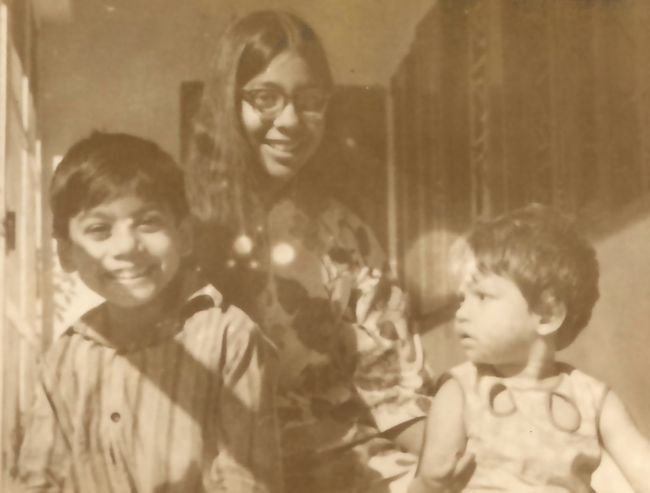Dolly, WALL-E and me
Put on your Sunday clothes when you feel down and out
Strut down the street and have your picture took
Dressed like a dream, your spirits seem to turn about
That Sunday shine is a certain sign that you feel as fine as you look
I was 10 that summer. My brother taught me how to operate our VCR, so I set its timer before my family went away for the weekend to a seaside chalet. We were living in Kuwait at the time. The local television channel rarely showed English-language programming, but Thursday evenings gave us several shows back to back. Our new VCR meant I no longer had to miss anything while we were out.
Returning from our weekend away, I found the VHS tape full of goodies: an episode of Little House on the Prairie (where the newly adopted daughter locks her school rival in the ice house); an episode of Hart to Hart (where a fashion model tries to kill Stefanie Powers); and a film called Hello, Dolly! The tape had run out before the finale, so it was technically three-quarters of a film.
I write this from memory – 33 years later – because I watched that tape so often that it’s seared into my brain.
Hello, Dolly! is an American film directed by Gene Kelly, made in 1969 and set in 1890. Mrs Dolly Levi (Barbra Streisand) is a widow who’s ‘always been a woman who arranges things,’ especially marriages.
In the mean time, there’s a ‘well-known unmarried half-a-millionaire’ called Horace Vandergelder (Walter Matthau) who is planning to propose to a milliner ‘by the name of Irene Molloy’. Horace is a shouty, cantankerous sort of fellow. He refuses to let his niece marry her young man. And he keeps his two store clerks Cornelius (Michael Crawford) and Barnaby working full-time with no life to call their own.
Dolly, naturally, enters the picture and upends everything. She helps the niece run off with her young man. Cornelius and Barnaby plan a break from the store to finally have an adventure of their own. ‘And we won’t come home until we’ve kissed a girl!’ sings Cornelius (for this is a musical). Dolly arranges for the young men to meet Irene Molloy and her assistant to fulfil their romantic dreams – thus clearing the path for Dolly to marry Horace Vandergelder herself.
There was nothing remotely dark about the film. (Anything shown on Kuwaiti television was family-friendly fare to begin with, and heavily censored on top of that.) There were numerous lavish dance numbers with women in full skirts over petticoats, and men in light-coloured suits leaping across parks, fountains and around an old steam train. It was funny too, with Dolly’s snappy repartee, the antics of Cornelius and the hysterical niece. The romance was frothy and genial, the settings sunny and cheery. ‘Put on your Sunday clothes, there’s lots of world out there!’ And this was a world where nothing terrible would ever happen.
‘It’s a happy story so it will have a happy ending,’ my brother told me. Without the film’s ending at hand, I imagined everything working out as he said it did. That Horace Vandergelder would approve of his niece’s marriage, make peace with Cornelius and Irene Molloy, and fall in love with Dolly after all.
No happy ending
Given the paltry English-language offerings on TV at that time, I was probably already inclined to rewatching taped shows more than once. But this was also the last recording that I remember watching with my brother before he died. I still remember all his comments on all three of the shows. Watching the tape repeatedly was a way of rewinding to a time when we had watched it together, before his fatal asthma attack soon after.
My family’s world turned on its axis so dramatically that, to this day, it has never righted itself. None of us ever recovered from the tragedy. More so, perhaps, because this was a time before therapy of any sort was used or even understood in our culture. I felt not only bereft but also bewildered, terrified and alone. It’s taken me several decades (and counting) to process the loss.
All I could do at the time was escape into the world of film. I watched and rewatched Hello, Dolly! Despite eye rolls from friends, despite amused jibes from my family, despite not even knowing its ending, I viewed it over and over again. It was predictable when nothing else around me appeared to be. I pulled out the tape every time I wanted to be comforted. I often wheeled the TV trolley into my bedroom so I could fall sleep to it. It was a constant companion in my life. Hello, Dolly! took me to a world where nothing terrible could happen.
Did you say Dolly?
Five years later, I still had the tape. My family had moved to Bangladesh at this point. When my sister was visiting from Boston, I brought it out and we watched it for old times’ sake. In a truly bizarre moment that still makes me gasp, I stopped the VCR midway and the screen returned to the TV. And on television – that’s Bangladeshi television that also rarely screened English-language programmes – they were showing a black and white film. But it was the same scene we had just watched. There they were – Dolly and Cornelius and Irene Molloy. They were blurry and played by different actors.
It took my sister and me some moments to absorb the shock of this surreal double play in front of us. We surmised that Dolly – ‘my’ Dolly – was a remake, and here was the original. And so it was, I later confirmed. A play called The Matchmaker had been adapted into a 1955 film of the same name. This later became a Broadway musical called Hello, Dolly! that in turn became the object of my mild obsession.
Despite the pedigree and its success at the time of release, Dolly faded into relative obscurity. It was never featured on a critic’s list of best musicals, championed as a forgotten favourite, or revitalised as a classic. Nobody I knew had even heard of it. It had disappeared from the memory of the public at large. It felt like it belonged only to me; it was my Dolly.
Did you say mild obsession?
Fast forward again more than 20 years to 2008 when I was on a plane from Delhi to London. Dolly had trained me to watch films. I saw them at every opportunity. I loved everything about them – the stories, the characters, the way I could better understand the human condition. I loved their magic. I loved how they gave me hope. I loved the way films could take me on a journey for a mere two hours and I would feel transported by the end of it. I loved that they inspired me. I loved their resolutions and clarity; how in them life had a purpose. I loved that I could rewatch them countless times and they would end the same way every time. I loved the cathartic release of weeping at the screen. When nothing else seemed to make sense, films were there to remind me that everything was a story. I worshipped movies so much I decided at age 11 I was going to work on them. And for nearly 20 years, I have.
I never lost my joy of watching cinema. And I was especially excited to see Pixar’s then-latest WALL-E, directed by Andrew Stanton, listed as part of the in-flight entertainment. I was a huge fan of Pixar's animation, but had missed it in the theatres because of work and travel.
I knew WALL-E was set in the future, at a time when humans live on a spaceship, so over-gorged from our excesses that we can no longer walk. We’ve discarded our planet, having destroyed its climate and decimated its resources, leaving only monstrous piles of rubbish. Robots like WALL-E – now only one left – remain to clean up our mess.
I pressed ‘play’ on the tiny screen in front of me and settled back on my airline seat. Seconds later, I jolted up. Because accompanying the opening titles was a song: Cornelius singing the opening lines of Put On Your Sunday Clothes.
WALL-E is mostly alone in the world. He spends his days busily cleaning up the chaos around him. Every evening when he returns home, he pops in a VHS tape – VHS tape! – and watches Hello, Dolly! on a monitor. It educates him on human emotions and living expansively. He hums the show tunes to himself as he goes about his day. This film – my Dolly – is a constant companion in his life.
In short, I was watching a film version of me on screen, and it was an animated robot called WALL-E.
Play it again, Dolly
After nearly 30 years since the last viewing, I watched Hello, Dolly! again today. It was entirely familiar – to the extent I knew all the dialogue without realising I remembered it. I also had a strange sensation of watching myself watching the film.
For the first time ever, I finally saw it to its finale. What I had thought would be the grand ending still had another act after it. Louis Armstrong was there too, singing the title song. The various story threads tied up in a satisfactory manner with one or two unexpected and welcome twists.
I had often thought Hello, Dolly! had its unique place in my life due to timing and circumstances, not because of the film itself. Had Kuwaiti television shown another film the day I’d set the VCR, or if I could recall watching something else with my brother as clearly as I did that, then I might have spent those years rewatching, say, Mary Poppins.
I had always believed the film hadn’t left any mark on me. But as I watched it again I remembered my noting decades ago how Irene Molloy decided she didn’t care if others approved of her; Cornelius’s excitement when he dared to try something new for the sake of adventure; how Dolly knew that with planning, generosity and wit, she could achieve anything. These slivers of insight had slotted inside me when I was young and have become a part of who I am.
Seeing the film again now, I realise that it was also about Dolly – its colourful extravaganza, flamboyant costumes, cheery tunes, spirited dancing and simple storyline. It’s not a masterpiece like my alter ego Pixar film. Yet Dolly’s very lack of nuance, satire and subversion sufficed for my tender age and tender needs: people want things to change and they do. This is a world where nothing terrible ever happens. As my brother had said, this is a happy story.
I realised that even though I hadn’t seen it for so many years, it was still my Dolly. It will always be my Dolly. Well, WALL-E’s and mine.
‘Are you sure this is an adventure, Cornelius?’
’You don’t have to ask, Barnaby. When you’re in one, you’ll know it, all right.’




